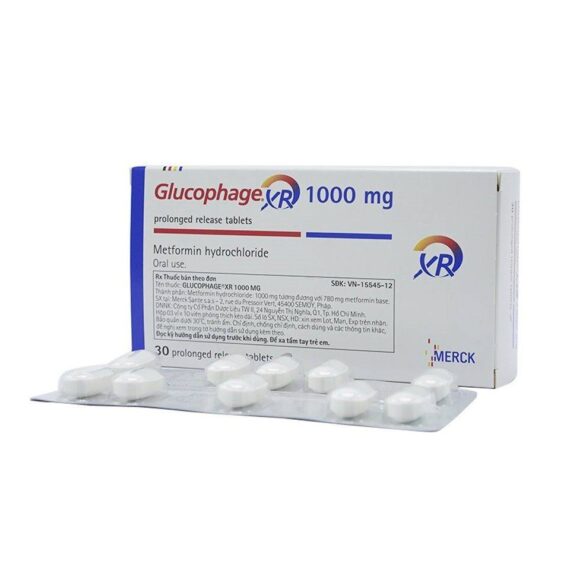Metformin (Glucophage) 30 Tablets
$85.00
- Blood Sugar Control: Metformin helps lower blood sugar levels by reducing the amount of glucose produced by the liver and improving the body’s response to insulin.
- Weight Management: It may contribute to modest weight loss in individuals with type 2 diabetes, making it beneficial for overweight or obese patients.
Description
Metformin, commonly known by the brand name Glucophage, is a medication primarily used to treat type 2 diabetes mellitus. It belongs to the class of drugs called biguanides, which work by decreasing glucose production in the liver and improving insulin sensitivity in the body’s tissues.
Key Features:
- Blood Sugar Control: Metformin helps lower blood sugar levels by reducing the amount of glucose produced by the liver and improving the body’s response to insulin.
- Weight Management: It may contribute to modest weight loss in individuals with type 2 diabetes, making it beneficial for overweight or obese patients.
- Cardiovascular Benefits: Metformin has been shown to reduce the risk of cardiovascular events, such as heart attack and stroke, in people with type 2 diabetes.
Usage Instructions:
- Dosage: The typical starting dose of Metformin for adults is 500 mg to 850 mg once or twice daily, with meals. Your doctor will determine the appropriate dose based on your blood sugar levels and response to treatment.
- Administration: Swallow the tablets whole with a full glass of water. Do not crush, chew, or break the tablets, as this may affect their effectiveness.
- Timing: Take Metformin with meals to minimize gastrointestinal side effects. If you are prescribed multiple doses per day, take them at evenly spaced intervals.
- Monitoring: Regular monitoring of blood sugar levels is essential to assess the effectiveness of Metformin and to adjust the dosage as needed.
Precautions:
- Kidney Function: Metformin is excreted by the kidneys, so it should be used with caution in individuals with impaired kidney function. Your doctor may need to adjust the dosage or monitor your kidney function regularly.
- Lactic Acidosis: Rare but serious side effect called lactic acidosis may occur, particularly in individuals with kidney impairment or other risk factors. Symptoms include muscle pain, difficulty breathing, and unusual fatigue. Seek immediate medical attention if you experience these symptoms.
- Liver Disease: Metformin should be used with caution in individuals with liver disease, as it may affect liver function tests.
- Alcohol: Limit alcohol consumption while taking Metformin, as alcohol can increase the risk of lactic acidosis and interfere with blood sugar control.
Side Effects: Common side effects of Metformin may include:
- Gastrointestinal Upset: Nausea, vomiting, diarrhea, and abdominal discomfort are common side effects, particularly when starting Metformin. These symptoms usually improve over time.
- Metallic Taste: Some individuals may experience a metallic taste in the mouth, especially during the initial stages of treatment.
- Hypoglycemia: Metformin does not usually cause low blood sugar (hypoglycemia) when used alone, but it may increase the risk of hypoglycemia when combined with other diabetes medications.
- Vitamin B12 Deficiency: Long-term use of Metformin may lead to vitamin B12 deficiency, which can cause symptoms such as anemia, neuropathy, and fatigue.
Less common but potentially serious side effects may include:
- Allergic Reactions: Seek medical attention if you develop signs of an allergic reaction, such as rash, itching, swelling, severe dizziness, or difficulty breathing, after taking Metformin.
- Liver Problems: In rare cases, Metformin may cause liver problems, indicated by symptoms such as yellowing of the skin or eyes (jaundice) and dark urine.
- Heart Problems: Although rare, Metformin may cause heart problems such as irregular heartbeat or heart failure, particularly in individuals with pre-existing cardiovascular conditions.
It’s essential to use Metformin as directed by your healthcare provider and to report any concerning symptoms or side effects promptly. Do not adjust your dosage or stop taking Metformin without consulting your doctor, as this can affect blood sugar control and increase the risk of complications.
Additional information
| Strength |
|---|
Only logged in customers who have purchased this product may leave a review.










Reviews
There are no reviews yet.